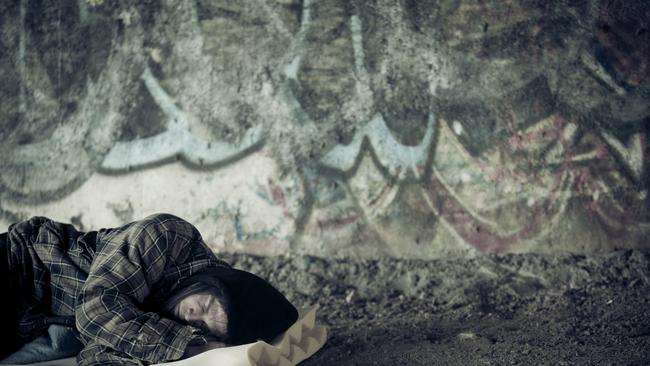COVID-19 pandemic has ‘appreciably increased’ homelessness in the Salisbury Council area, new report reveals
Salisbury Council is set to launch a new homelessness strategy following concerns COVID-19 has “appreciably increased” the number of people sleeping rough.
North & North East
Don't miss out on the headlines from North & North East. Followed categories will be added to My News.
There has been a “noticeable increase” in the number of homeless people in the Salisbury Council area due to COVID-19, including a “chronic rough sleeper population” within the city centre, a new report reveals.
Set to rubberstamp its new Homelessness Strategy, the council says the number of people sleeping rough, the “most visible form of homelessness”, has significantly increased over the past 12 months.
The launch of the strategy follows a council workshop in June.
That was held in response to complaints made by John St traders concerned with incidents involving homeless people in the city centre.
The council believes the pandemic has also “appreciably increased the numbers of homeless people across the entire northern Adelaide region due to a combination of economic factors and reduced accommodation availability”.
“It is recognised that homeless people are at particularly increased risk during the crisis due to underlying health conditions and the inability to self-isolate to protect from the risk of contagion,” a council report which accompanies the strategy reads.

A council plan to create a temporary homeless shelter was not supported by the Northern Adelaide Homeless and Violence Against Women Collaboration and other local, key stakeholders.
“(The shelter) was outside the role of local government to develop or manage,” the report reads.
However, the new strategy has laid out a broad range of actions to better support the homeless, including both Anglicare SA and the SA Housing Authority committing to an outreach service.
They will help connect a “chronic rough sleeper population” within the city centre to appropriate support services.
The strategy reveals Salisbury had the third highest estimated homeless population during the 2016 Census, with 627 people, behind only Adelaide City (644) and Port Adelaide Enfield councils (751).
There was an estimated 401 homeless people within Playford at the time.
However, the council believed the numbers were conservative estimates, with local service providers confirming that demand for homelessness, housing and support services in the northern Adelaide region was “significantly higher” than what the Census figures show.
Data from the Australian Institute of Health and Welfare recorded 1618 people from the council area were clients of a specialist homeless service in the 2018/19 financial year.
MORE NEWS
Lobby group calls for major northeast public transport study to be released
Thirty trees razed for two netball courts in Paradise
Campbelltown Council rejects proposed e-scooter trial
The strategy reveals the most common “personal drivers” for homelessness are domestic violence, family and relationship breakdown, mental illness, trauma, substance use and problem gambling.
“Reducing homelessness in the City of Salisbury is achievable but it requires a collaborative effort, a long term vision and commitment,” the strategy reads.
“The City of Salisbury has a higher than average proportion of the population who experience some of the identified drivers that are known to contribute to homelessness.”
Elected members will vote on the strategy on Monday night.

